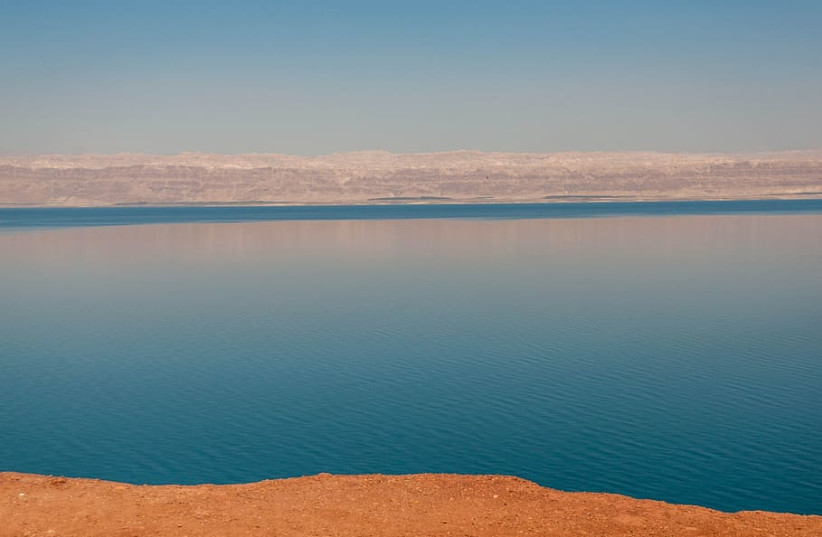On April 13 and 14, Iran executed its first direct attack on Israel amid the current conflict, starkly underscoring the fragile security environment that surrounds us. This very date marks a personal and poignant anniversary for me as well; eight years prior, I embarked on my first journey to the Dead Sea, drawn by its haunting beauty and environmental plight, aboard a unique boat excursion at the earth’s lowest point.
In my role as a foreign relations manager at ISRAEL-is, aimed at improving Israel’s global image post-October 7 atrocities, the sight of an intercepted Iranian missile plunging into the Dead Sea reignited my dedication to addressing both environmental and security challenges in our region. This 750 kg. warhead missile, a vivid symbol of aggression, not only opens a new drastic chapter in the Middle East conflict, but also strikes a body of water that symbolizes both natural wonder and ecological fragility.
Following the tumultuous aftermath of the Gaza war, the October 7 atrocities and Iran’s latest provocation, the security challenges facing Israel and its neighbors have only deepened. A significant display of regional dynamics unfolded as Jordan decisively intercepted several missiles from Iran aimed at Israel and Gulf states, including Saudi Arabia, and provided intelligence on the Iranian attack. This act of cooperation amidst conflict underscores the complex interplay of antagonism and alliance that characterizes our regional relations.
We need a dual strategy: environmental preservation and coexistence
Recalling the days leading up to October 7, there was a fleeting optimism about regional partnerships underpinning a brighter future. During this period, I walked the corridors of Capitol Hill with a delegation from the Middle East and North Africa, championing the third year of the Abraham Accords. My role then as the director of the Dead Sea Revival Project involved advocating for water diplomacy and the development of environmental tourism—a dual strategy aimed at environmental preservation and fostering coexistence and unity among the peoples connected by shared ecological and cultural narratives, particularly focusing on water sustainability in one of the world’s driest regions.

Today, as the shadow of escalating conflicts looms larger, the necessity for a regional security alliance against Iran becomes increasingly imperative. Yet, within these brewing tensions lies a critical opportunity for cooperation centered around our mutual environmental concerns. The declining waters of the Dead Sea serve as a stark reminder of the broader environmental challenges that defy political borders and demand collaborative action.
Looking ahead, our focus must evolve from mere survival and tactical maneuvers to fostering sustainable cooperation. We are reminded that our shared water resources and environmental challenges could be the cornerstone of a robust regional alliance. Such cooperation does not merely address immediate ecological needs but also establishes the groundwork for a more stable and secure future.
As we navigate these complex times, our unwavering commitment to environmental diplomacy and regional cooperation continues to strengthen. The stories of resilience from the Dead Sea to the diplomatic corridors illuminate the pressing need for a unified approach to both security and sustainability. These narratives reinforce the importance of leveraging shared environmental interests to bridge divides and forge lasting peace in the region.
The success of diplomatic efforts like the Abraham Accords highlights the potent impact of cooperative strategies and underscores the critical need to engage communities and nations in dialogues about mutual interests and shared destinies. This comprehensive approach will not only counter the destructive ideologies of Iran and its proxies but also pave the way for a sustainable and peaceful future for all involved.
The writer is foreign affairs manager for ISRAEL-is, and formerly served as director of the Dead Sea Revival Project.
